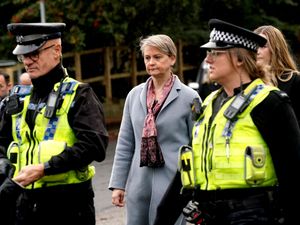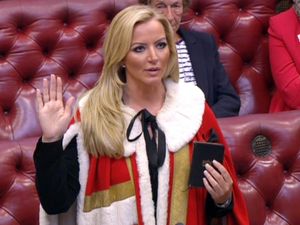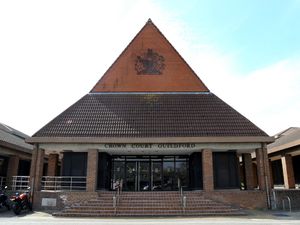Campaigners express ‘deep concern’ over police accountability review
Groups including the charity Inquest have written to the Home Secretary urging against changes to inquest conclusions and misconduct hearings.

Campaigners have expressed “deep concern” over a review of police accountability launched in the wake of anger over the murder charge brought against the police officer who shot gang member Chris Kaba.
Groups including Inquest, Liberty and the Centre for Women’s Justice wrote to Home Secretary Yvette Cooper urging her not to change the threshold for an inquest conclusion of unlawful killing, or move against a key ruling on police misconduct proceedings.
The review was launched by the previous government in 2023, amid anger over the decision to prosecute Metropolitan Police firearms officer Martyn Blake over the fatal shooting of Mr Kaba.

More than 100 officers downed tools after the criminal charge was announced, and Mr Blake was cleared of murder by a jury at the Old Bailey in October.
There was also fury over the prosecution of Pc Paul Fisher who crashed on his way to a terrorist attack in Streatham, south London, in February 2020, but was cleared of dangerous driving.
The letter said: “Those seeking legislative change suggest the treatment of Mr Blake, and other officers who find themselves under investigation, demonstrates an overly onerous system of accountability that is unfair to police officers.
“However, the legislative changes under consideration in this review would have had no impact on the prosecution of Mr Blake, leading us to conclude that this review is less a knee-jerk reaction but rather a dangerous and calculated attempt to use a high-profile case to push for less scrutiny and accountability of police actions.”
The campaigners’ letter continued: “The Government state the current legal tests can lead to ‘confusion’ and ‘long delays’, yet we have not seen any credible argument that delays would be reduced by the changes under consideration, nor of evidence showing a widespread problem which requires fixing.”
Since 1990, there have been 1,916 deaths in or following police contact. Twelve police officers have been charged with murder or manslaughter during that time, one of whom was convicted – West Mercia Police Constable Benjamin Monk, who was jailed in 2021 for the manslaughter of former footballer Dalian Atkinson.
After Mr Blake was cleared, the Home Secretary announced that rules would be changed to give officers accused of murder or manslaughter after a shooting anonymity unless they were convicted, and to bring the threshold used by a watchdog for criminal investigations against police officers into line with standards used by the Crown Prosecution Service.

The campaigners argue that the effect of changing the thresholds for inquest conclusions would be “incredibly wide-ranging, well beyond the sphere of policing, and would have profound effects on inquests into suicides and cases involving violence against women, mass fatalities and deaths in prison”.
They also urged Ms Cooper to accept a legal ruling linked to another Met marksman, known as W80, who fatally shot Jermaine Baker during a foiled prison break in north London in 2015.
A legal battle rumbled on between the officer and the Met on one side, and watchdog the Independent Office for Police Conduct (IOPC) on the other, over whether a disciplinary panel can make a misconduct finding where an officer’s belief that their life was in danger is found to have been unreasonable.
In 2023 the Supreme Court ruled that a panel can do so, in favour of the IOPC.
“Following the decision in W80, the civil standard used to scrutinise police use of force helps ensure misconduct hearings contribute to the police’s ability for learning, development and, ultimately, public confidence that inappropriate, excessive and dangerous use of force will be robustly accounted for,” the campaigners said.
“Any move away from the exacting legal tests set out in the judgments of the Supreme Court towards weakening standards of accountability would be at odds with the Government’s stated commitment to restoring our reputation as a country that upholds the rule of law.”
A Home Office spokesman said: “It is vital that we can continue to rebuild confidence in the police and the systems that hold them to account, whilst ensuring they feel empowered to carry out their jobs to the highest standard.
“That is why we are bringing in new reforms to the accountability system and strengthening vetting standards, ensuring both police and the public can trust our policing is of the highest standard.”





